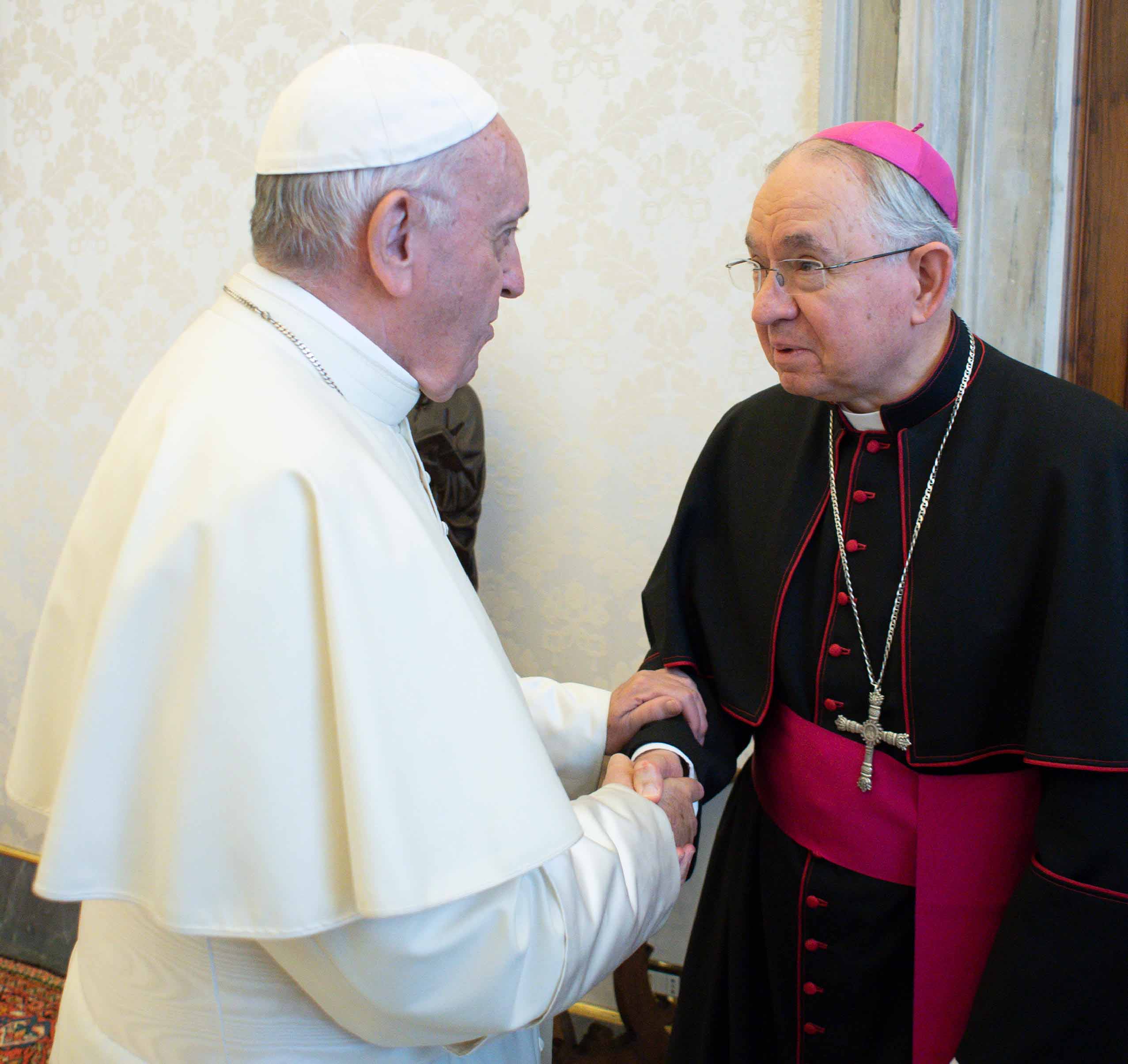By Christopher White, The Tablet’s National Correspondent

ROME – Archbishop José Gómez, the de facto head of the United States Conference of Catholic Bishops (USCCB) as the body’s president, Cardinal Daniel DiNardo, faces health issues, will travel to Rome the week after Easter to meet Vatican officials to discuss new measures for U.S. bishop accountability.
The Tablet has confirmed with multiple sources, who spoke under the condition of anonymity as they were not authorized to comment on the matter, that a USCCB delegation, originally intended to be led by Cardinal DiNardo of Galveston-Houston, will discuss proposals for accountability that the U.S. bishops hope to adopt when they meet again in June.
Msgr. Brian Bransfield, general secretary of the USCCB, along with other senior officials, will join Archbishop Gómez, the archbishop of Los Angeles, for the visit.
Last month Cardinal DiNardo was briefly hospitalized for what was termed a “mild stroke.” Archbishop Gómez is currently responsible for day-to-day operations of the USCCB while the Texas cardinal is recovering.
During the Vatican’s summit on sex abuse in February, when Pope Francis summoned the head of every bishops’ conference around the world to Rome, Cardinal DiNardo told The Tablet that such a visit was likely.
He said that following a March administrative committee meeting of the USCCB, a delegation would travel to Rome to present the developing proposals in order to avoid a repeat of what happened last November when the Vatican quashed previous plans for a vote, stating that the proposals lacked the necessary accordance with canon law and that the U.S. bishops’ had not given adequate time for Vatican review.
Cardinal DiNardo told The Tablet that prior to putting any new policy up for a vote, it would be necessary to “take a quick visit to Rome” as “we don’t want to see what happened before.”
The proposed measures slated to be put forward at last November’s USCCB General Assembly included a new Code of Conduct for bishops and would have created a national lay-led committee to evaluate complaints made against bishops. Those proposals generated concern in Rome about imposing new forms of authority over bishops outside the Church’s hierarchical structure, which could be seen as circumscribing the pope’s ultimate authority.
During the February summit in Rome, Cardinal Blase Cupich of Chicago, one of the summit’s organizing committee members, gave a speech instead outlining “new legal structures of accountability,” which would utilize the metropolitan archbishop who oversees the dioceses within his particular province.
As Archbishop Gómez and the USCCB delegation prepares to meet with members of the Roman curia, the current state of the USCCB proposals remain unknown.
The Tablet, however, has also learned that the Vatican’s Secretary of State has drafted new universal guidelines for bishop accountability that are modeled after the metropolitan model, although it remains uncertain as to when and if they will be formally unveiled.
When asked by The Tablet for comment, the USCCB said “consultations with the Holy See are ongoing.”
